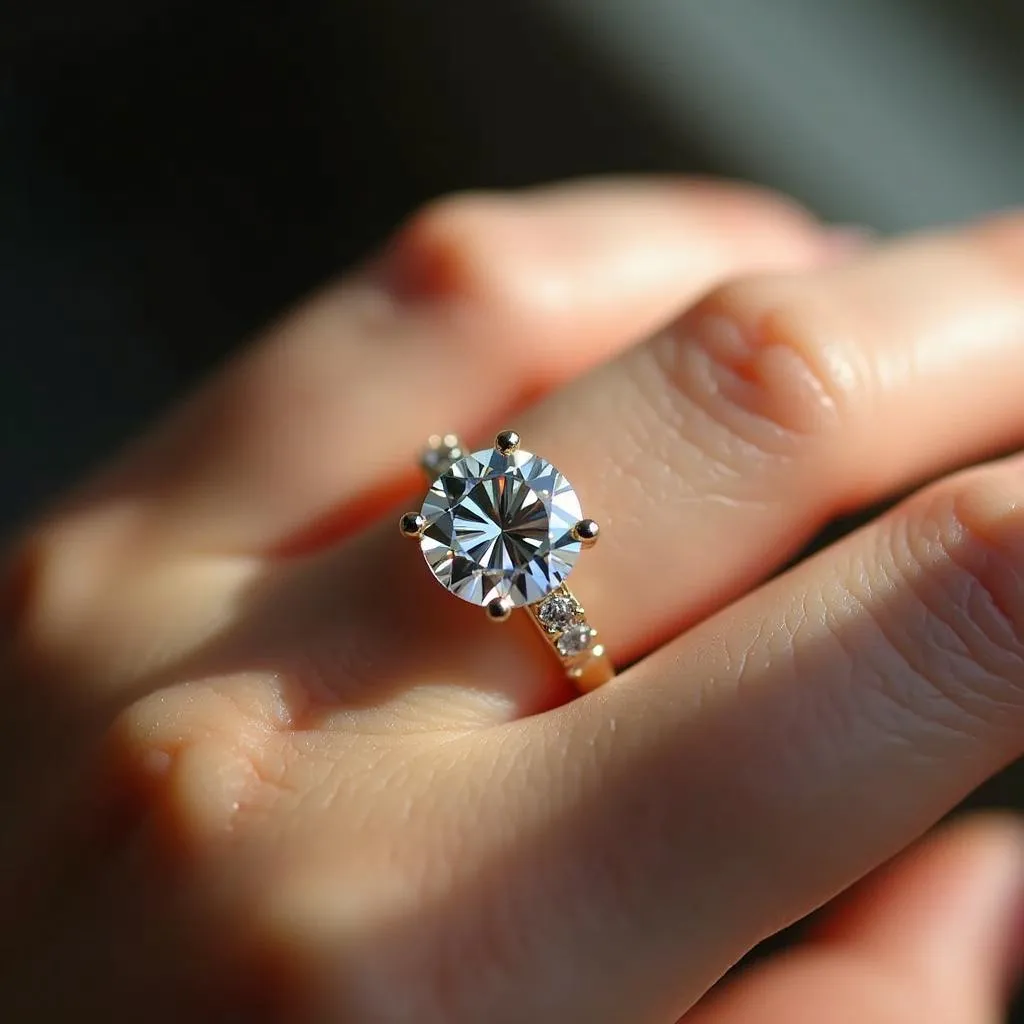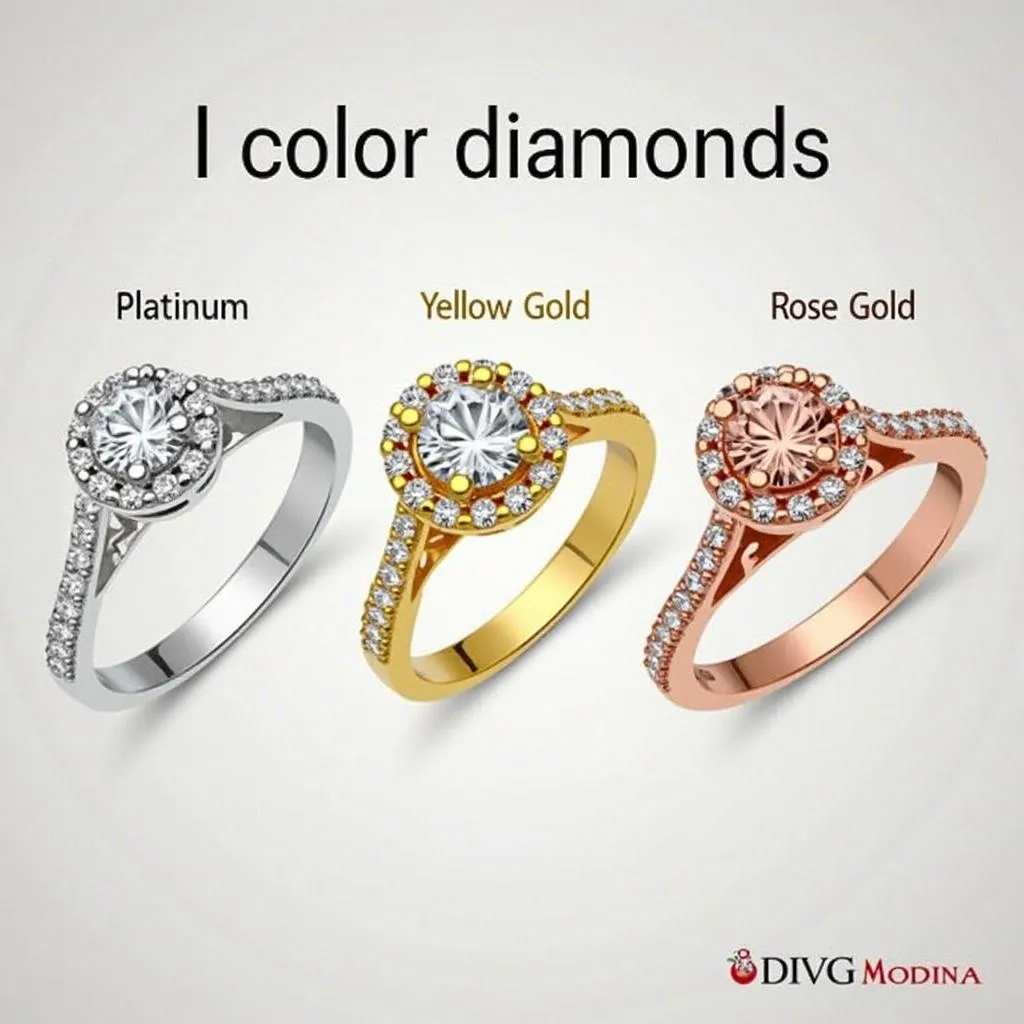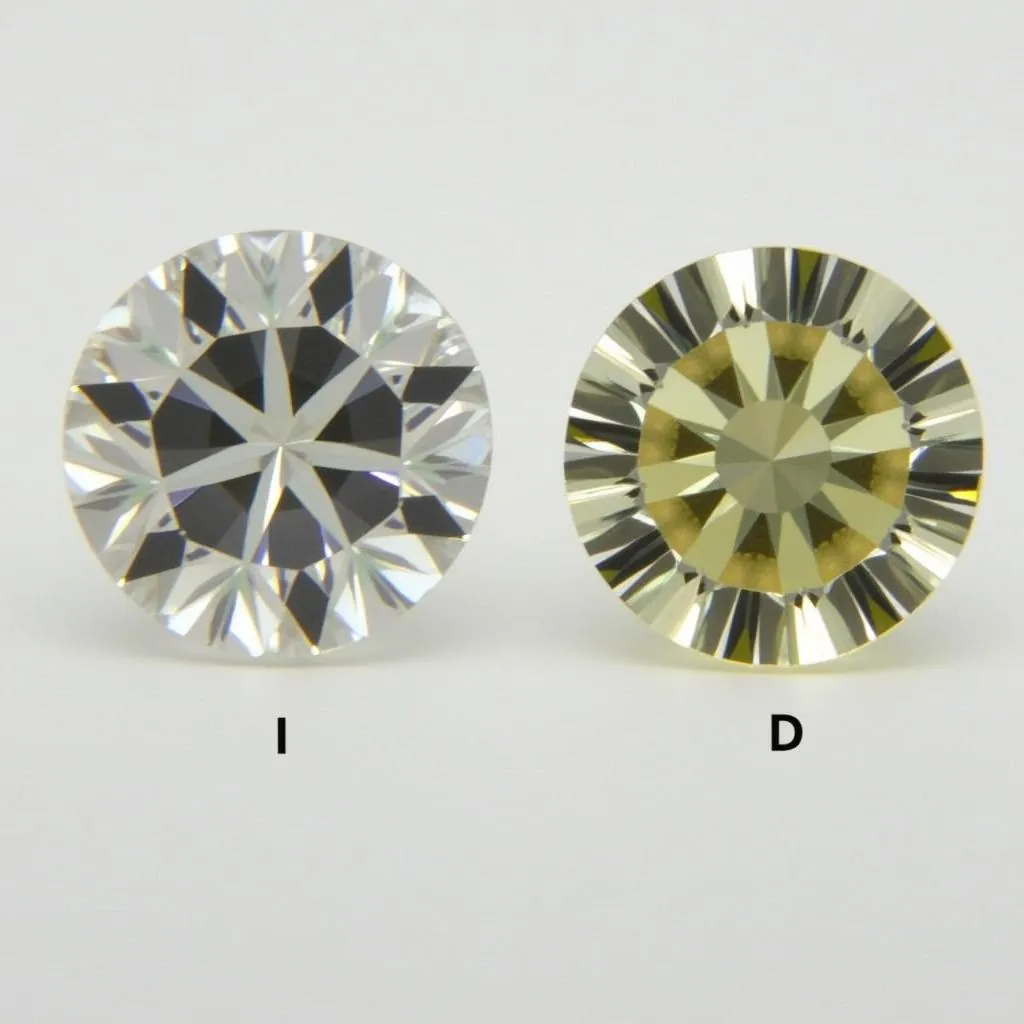When it comes to diamonds, the “4Cs” reign supreme: Cut, Clarity, Carat, and Color. While all play a crucial role in a diamond’s beauty and value, color often sparks the most curiosity and confusion. Today, we’re diving deep into the world of I color diamonds, uncovering their characteristics, advantages, and whether they’re the right choice for you.
 Close-up of an I color diamond on a person's hand
Close-up of an I color diamond on a person's hand
Demystifying Diamond Color
Diamond color grading, unlike what we learned in art class, focuses on the absence of color. The GIA (Gemological Institute of America) grades diamonds on a scale from D to Z, with D representing completely colorless and Z exhibiting noticeable color.
I color diamonds fall in the ‘Near Colorless’ range of the scale. This means they possess a subtle warmth that might not be apparent to the untrained eye, especially when viewed face-down.
The Appeal of I Color Diamonds
Value for Money
One of the most significant advantages of I color diamonds is their attractive price point. Compared to their higher-graded counterparts (D, E, F), I color diamonds offer substantial savings without compromising significantly on brilliance. This makes them a popular choice for budget-conscious buyers seeking maximum sparkle for their investment.
Versatility in Settings
I color diamonds pair beautifully with various metal settings. While they complement the cool tones of platinum and white gold, their subtle warmth truly shines in yellow gold or rose gold settings. These warmer metals can even enhance the diamond’s fire and brilliance, creating a captivating play of light.
 Comparison of I color diamond rings in different metal settings
Comparison of I color diamond rings in different metal settings
Size and Sparkle Prioritized
For those who prioritize size and sparkle over absolute colorlessness, I color diamonds offer an excellent opportunity to maximize carat weight. Since color is less perceptible in larger diamonds, opting for an I color allows you to choose a more impressive stone within your budget.
Factors to Consider
Lighting is Key
The appearance of an I color diamond can vary depending on lighting conditions. While they appear brilliantly white in most lighting, subtle warmth might be more noticeable under direct sunlight or fluorescent light.
Personal Preference
Ultimately, the decision of whether an I color diamond is “good” depends on your personal preference and priorities. If absolute colorlessness is paramount, then higher grades like D, E, or F might be more suitable. However, if you’re seeking a beautiful, brilliant diamond that offers exceptional value and allows you to prioritize other factors like carat weight or setting, then an I color diamond could be an excellent choice.
 Side-by-side comparison of I color diamond with D color diamond
Side-by-side comparison of I color diamond with D color diamond
Making an Informed Decision
Consulting with a reputable jeweler is crucial when considering an I color diamond. They can provide expert guidance, showcase diamonds with varying color grades, and help you find the perfect stone that aligns with your individual preferences and budget.
Conclusion
An I color diamond can be an exceptional choice for discerning buyers who understand the nuances of diamond color. They offer a brilliant sparkle, attractive price point, and versatility in settings. By carefully considering your priorities and consulting with a trusted jeweler, you can confidently determine if an I color diamond is the right fit for your dream piece of jewelry.

